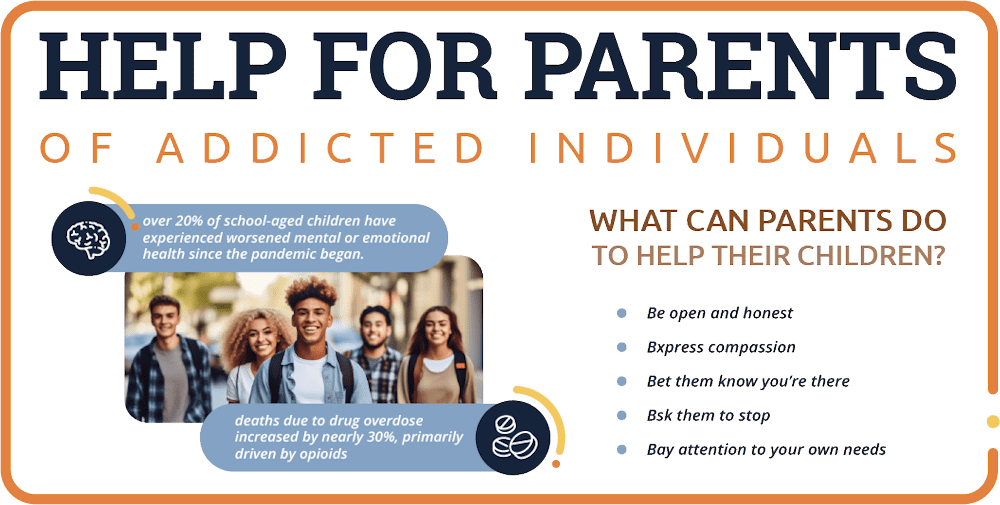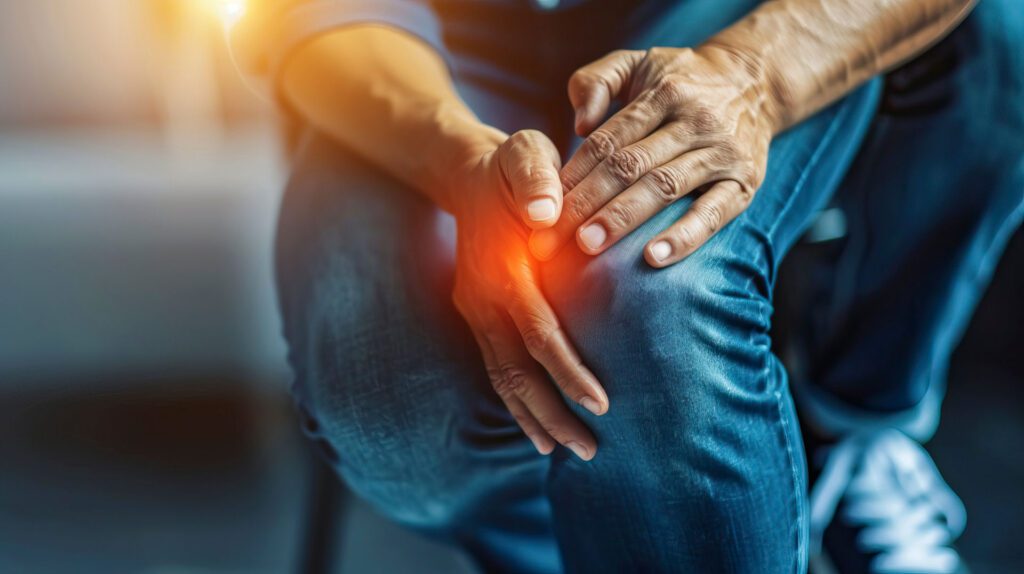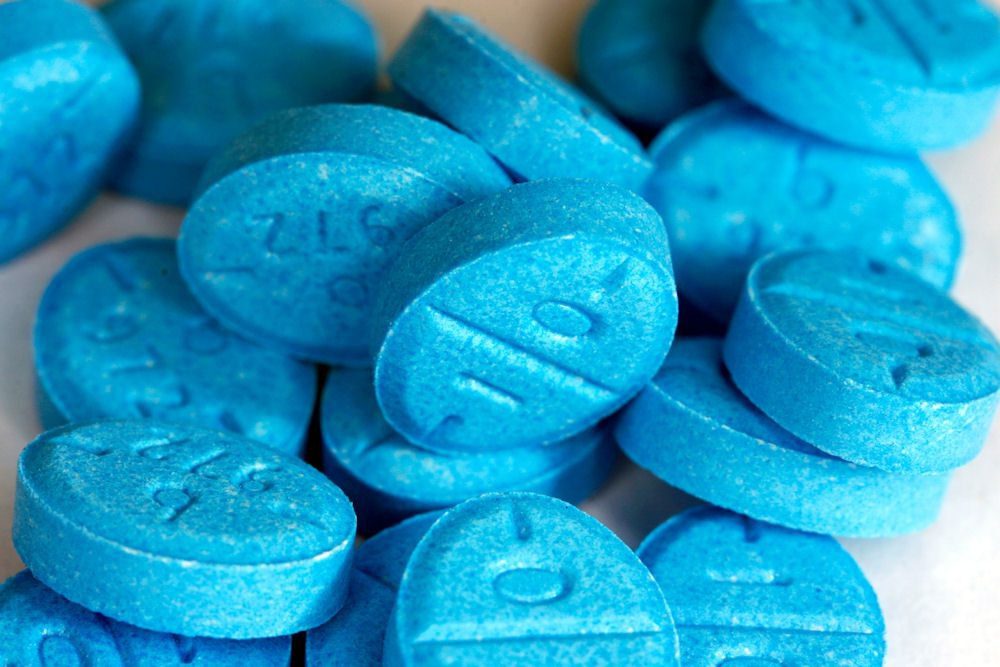Help for Parents of Addicts
 Addiction is a disease that affects the entire family, and it is important for parents to remember that they need to take care of themselves first and foremost to be effective caregivers. Seek out help from those who have been through this before and never hesitate to ask for advice.
Addiction is a disease that affects the entire family, and it is important for parents to remember that they need to take care of themselves first and foremost to be effective caregivers. Seek out help from those who have been through this before and never hesitate to ask for advice.
Parents of addicts often feel guilt, anger, and sadness that their child has an addiction problem. They need support just as much as the addict does because parents also struggle with self-blame, self-destructive behavior, and suicidal ideation. It can be very helpful for parents to attend family therapy sessions so they can meet other parents who are experiencing similar issues.
Jump to Section
What is Addiction?
Addiction is a chronic disease that affects the brain and behavior. It is characterized by compulsive drug seeking and use despite harmful consequences. Drug addiction can result from repeated use of any addictive substance. For example, opioids were involved in 46,802 (a rate of 14.6) overdose deaths in 2018—nearly 70% of all overdose deaths. Behavioral addictions such as gambling or sex addiction are also possible. Addiction is a treatable disease, but there is no one cure for addiction.
What Are the Signs and Symptoms of Addiction?
The signs and symptoms of addiction vary from person to person but can include:
– Drug cravings
– Loss of control over drug use
– compulsive drug seeking and use despite harmful consequences
– Failure to meet obligations at work, school, or home because of drug use
– Continued use or relapse even after promising to stop
What Are the Risk Factors For Addiction?
The risk factors for addiction include:
– Genetics: People with a family history of addiction are more likely to develop an addiction.
– Environment: A person’s environment plays a role in their risk for addiction. Factors such as peer pressure, stress, and exposure to drugs or alcohol can increase a person’s risk for addiction.
– Mental Health Disorders: People who have mental health disorders are also at risk for addiction. About 50 percent of people with psychiatric disorders also have an addiction problem.
How Does Addiction Affect Children in Northern Illinois?
Substance abuse in Northern Illinois has a direct effect on children and parents. Children are more likely to be exposed to drugs or alcohol while parents struggle with finding support.
As a result, negative mental health outcomes have also affected children and adolescents; over 20% of school-aged children have experienced worsened mental or emotional health since the pandemic began. Substance use complications have also worsened, including deaths due to drug overdose increased by nearly 30% from 2019 to 2020, primarily driven by opioids.
There are many reasons parents should stop enabling their children. Enabling is the action parents take that helps to keep the addiction going, such as:
- Paying for everything
- Bailing them out of jail
- Taking away consequences for using/possession
In parents’ minds, they think they have good intentions because they don’t want their child to experience consequences which could lead to an increase in kids feeling hopeless or being embarrassed about their situation so parents protect them from these consequences, which makes it harder for kids to learn from mistakes and become productive members of society.
Parents decide not to hold addicts accountable because parents take care of their kid’s responsibilities while the addict does whatever they want because addicts get high instead of recovering.
The Roles Parents Play in Addiction
Parents may experience a wide range of emotions in response to a child’s addiction, including guilt, anger, resentment, and helplessness if parents feel that they have lost control over their child’s behavior.
Some parents also feel anxious when they think about how the addiction affects other people, such as family members and friends. Some parents withdraw from their child and the child’s addiction to maintain some sense of control.
Many parents try to deal with the addiction on their own, but this can be very difficult. It is often helpful to get support from other parents who are dealing with a child’s addiction. There are many support groups available for parents of drug addicts. Parents can also seek help from mental health professionals who specialize in addiction treatment.
What Can Parents Do to Help Their Children?


There are things that parents can do to help their children who are struggling with addiction.
1) Talk openly and honestly with your children about addiction. Make sure they know that addiction is a disease that it is not their fault.
2) Express compassion for your child. Let them know you still love them and want to help them.
3) Ask your children if they are willing to get treatment for their addiction, and let them know that you will be there every step of the way as they recover from their disease.
4) Ask your children to stop using drugs immediately. Let them know that you will do everything in your power, including calling the police or other legal authorities, to keep them from harming themselves.
5) Make sure parents have a good support system of family members and close friends who can provide relief when parents feel overwhelmed by stress associated with having an addicted child. Parents should make sure not to neglect their own needs for self-care when dealing with an addict.
How to Stage an Intervention
Staging an intervention can come with the burden of knowing that your child is suffering from substance abuse. Parents should prepare for intervention in much the same way, making sure they have support from other family members and close friends.
Preparing parents should also contact the parents of your child’s closest friends to let them know you will be contacting their parents to inform them that he or she is using drugs.
Parents should not attend the intervention alone; parents of drug-addicted children need all the help they can get to stage an effective intervention. They should make sure that everyone understands the importance of non-violence during this process.
When parents are ready to begin preparing for intervention with their child, there are several things parents should remember:
- Make sure parents are on time when attending an intervention with their children, or children will likely reject it.
- Choose a neutral place to hold the intervention.
- Present evidence of substance use.
- Use “I” statements to show how their substance abuse has affected you.
- Create a plan of action for treatment, even offering to transport them.
- Educate yourself about substance use –Include statistics and facts about addiction.
- Only include close friends and family members.
- Craft options if they refuse treatment.
Self Care Tips for Parents of Addicts
Parents of addicts can forget to take care of themselves. The weight of supporting your child with a SUD (substance use disorder) drains your capacities. Exhaustion and stress are common symptoms for parents of addicts.
So, it’s important to remember to practice some self-care tips:
1) Get enough sleep. Most parents of addicts feel like they don’t have time for themselves, let alone enough hours for sleep. However, sleep deprivation will only make you more exhausted and stressed in the long run. Aim for at least seven hours of sleep every night.
2) Exercise. Exercise releases endorphins, which have mood-boosting effects. A moderate amount of exercise each day can help reduce stress levels and improve your overall mood.
3) Eat healthy foods. Junk food will only make you feel worse in the long run. Eating nutritious foods can provide lasting energy to support your child.
4) Talk to other parents. Enlist the help of parents who understand what you are going through. If group therapy is not an option, reach out online to parents in need of support.
5) Find healthy outlets for stress. When parents of addicts are experiencing high levels of stress they tend to smoke more or drink alcohol, which can then lead to problems with their physical health. Instead, try activities that release endorphins and increase serotonin levels, such as exercising or spending time in nature.
6) Take care of yourself first. Looking after yourself by taking steps one through five will make you a stronger parent for your child when they return home because you are emotionally stable and capable of guiding without judging them.
7) Create healthy boundaries. If parents give children too much freedom when they first return home from rehab without supervision or counseling, this could result in a relapse as it provides them with an opportunity to go back to old behaviors that may have led to addiction in the first place (such as using alone).
What Are Treatment Options for Addiction?
The continuum of care provides resources for parents of addicts. If parents can understand the details of what drug rehab Illinois has to offer, they will feel better equipped to help their children.
What parents can do is find out about the different types of treatment programs available for addicts and what might be most suitable for their child. Treatment options depend on several factors, including age, the severity of addiction, duration of use, time since last use, and co-occurring mental health disorders.
Psychotherapy
Psychotherapy is an efficient form of treatment for many addiction cases. It works to resolve issues through counseling sessions that explore both parents’ and children’s feelings about addiction, trust, honesty, and communication.
Psychotherapy can be done in one-on-one counseling or group therapy sessions. One-on-one therapy is usually ideal but may not always be available. Group therapy sometimes works better because parents can talk with parents who are facing similar problems.
Residential Treatment
Residential treatment or inpatient treatment is a type of addiction treatment where the addict lives at the treatment center full-time. This is an option for parents who are unable to watch their child during treatment or for parents whose children have relapsed after outpatient treatment.
Inpatient treatment usually lasts from 28 days to three months, and during that time, parents will usually be able to visit their child as often as they like. The cost of inpatient treatment varies depending on the length of time your child stays, but it is typically more expensive than outpatient treatment.
Outpatient Treatment
Outpatient treatment is another option for parents whose children are addicted to drugs or alcohol. Outpatient treatment allows the addict to live at home and go to the treatment center for therapy sessions. The parents of addicts can also seek treatment for themselves during this time to learn ways they can better help their children.
It’s important parents who are attending outpatient therapy sessions with their children receive treatment as well, so they know how to handle future situations. The parents of addicts need support just as much as the addicts do. This is a difficult thing for parents to come to terms with because they feel guilty about having a child that has an addiction.
Dual Diagnosis Treatment Centers
Dual diagnosis treatment is used for co-occurring disorders or a combination of mental health and substance use disorder.
Case Management
Case management for parents of addicts includes processing parents’ feelings, monitoring parents’ stress levels, and the parents’ overall health.
Relapse Prevention Plan
Parents of addicts should develop a relapse prevention plan with their child as well as themselves because parents often relapse too when they can’t handle the pressure or stress that comes along with having an addict in the household.
Parents need to learn about treatments and programs that will best help their children and themselves through this difficult time. Many treatment centers offer family therapy sessions and case management services for parents of addicts also.
This way, parents have services directed specifically towards them, so they know what to do should similar situations arise again in the future. Parents who have been inadvertently enabling their children need additional help learning how to change those enabling patterns.
Support Groups for Parents of Addicts
Many parents find it helpful to attend support groups specifically designed for parents in this situation. These groups offer a safe place for parents to share their experiences and feelings, receive support from others who understand what they are going through, and learn about resources available to them.
Some are online, while others are in-person groups. In-person groups are a great way to meet other parents who are going through the same thing you are. It can be helpful to have a group of people you can talk to who understand what you’re going through.
There is power in numbers, so parents should consider attending group counseling sessions, so they do not go through this difficult time alone. It is important parents learn ways they can help their children better during this time by taking care of themselves first before attempting to take care of anyone else.
Some common support groups for parents of addicts include:
- Families Anonymous
- Nar-Anon
- Al-Anon/Alateen
- Parents of Addicts (POA)
- Family Support Group for Drug Addiction (FSGDA)
- Parenting in Recovery
Although it can be difficult, parents should continue to have a relationship with their addicted child if at all possible. In addition, parents should keep in mind that they are healing as well. Parents should reach out for help from friends, family, and professionals to cope with the addiction of a loved one.
There are many parents out there struggling with their child’s addiction. It is important to know that you are not alone, and there are resources available to help you through this difficult time. By seeking out help from support groups or professionals, parents can learn how to better cope with their child’s addiction and begin to heal themselves.
Embrace a New Opportunity at Northern Illinois
When parents don’t seek support, it could lead them to abuse alcohol or drugs to cope with being a parent of an addict. This keeps the parents from being able to be supportive when their children are struggling. Parents who join support groups will find empathy from parents whose kids have similar problems managing their addictions.
They may also learn information that they could not get anywhere else, such as where parents can turn for help if their child fails treatment or what steps to take if their son or daughter relapses again after completing treatment. If you seek guidance, contact a Northern Illinois facility today!


Licensed Physician and Surgeon
Dr. Beth Dunlap, a board-certified addiction medicine and family medicine physician, and is the medical director at Northern Illinois Recovery Center. She is responsible for overseeing all the integrated medical services at both campuses. Beth completed medical school, residency, and fellowship at Northwestern University, where she continues to serve on the faculty as a member of the Department of Family and Community Medicine. She has extensive experience in addiction medicine at all levels of care, and her clinical interests include integrated primary care and addiction medicine, harm reduction, and medication-assisted treatment.













